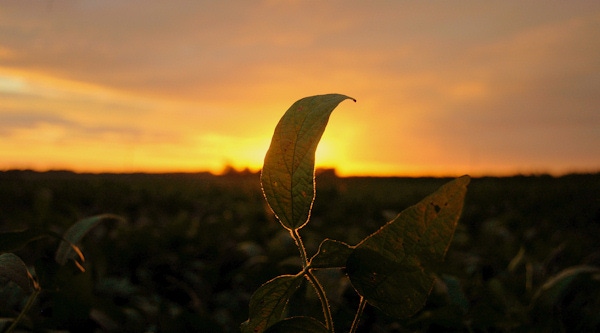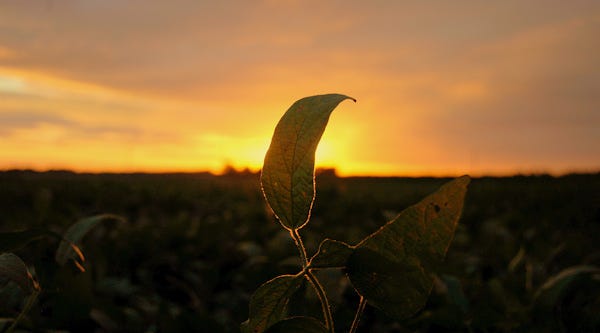
I'll likely get in trouble for saying this but I'll do it anyway: I really dislike the word "sustainability."
The word has become fraught with politics and peril. Look around your grocery store, and particularly any large urban grocery, and you'll see it showing up on labels: "sustainably grown!" Throw sustainable in front of any noun and you suddenly have something that must surely be good, if only because it's preceded by sustainable.
Sustainable agriculture? Good! Sustainable lawn care? Good! Sustainable ant farming? Absolutely good!

Morning dawns on the farm, whether they talk "sustainable" or no.
Clearly, I'm a minority here, judging by the number of press releases flowing into my email inbox daily, which tout some sector of sustainable agriculture. Those same organizations used to talk about conservation. Now they talk about sustainability. And the result? It feels a little like a bandwagon.
I'm all for the premise, certainly. Farmers need to produce food in a way that sustains the earth's resources and makes it so we can continue to do so far into the future. Absolutely. Let's do that. And I would certainly allow that agriculture can do many things better. Farmers are a people who value the soil and its resources and want to take care of it, and they're learning new ways to do so every day. Let's figure out ways to "sustainably" source fertilizer without relying on those most unstable parts of the world. Let's continue installing filter strips and protecting water sources. Let's continue developing technology that lets us apply fertilizer and crop protection chemicals only where we need them. And let's continue funding organizations like soil and water conservation districts, which did sustainability before sustainability was cool. They're doing good work, and their offices are a skeleton of what they were 10 years ago, thanks to funding cuts.
But let's not let sustainability become like organic: a word that means little more than whatever message the user wants to convey. A marketing term, designed to deliver positive connotations. Words are important, and they are weakened when we use them improperly.
And back on the farm, let's keep working to conserve what we have and protect it for future generations. That's what a real steward of the land does, and what any real push for sustainability should be about. Whether they use the word or not.
The archives: 30 Days on a Prairie Farm
Kickoff: 30 Days on a Prairie Farm
Day 14: Leave the Farm
Day 15: Dialogue
Day 16: Store Grain
Day 17: Love
Day 18: Kid Love
Day 19: Straight Rows
More "30 Days" farm blogs
Looking for more 30 Days goodness? My Generation has friends and we're all blogging a "30 Days" series in November. Check out what these farm bloggers are talking about this month.
Beyer Beware: 30 Days, 30 Things You Never Knew About Food
Black Ink: Beef's a Trip - 30 Days from Gate to Plate
Confessions of a Farm Wife: 30 Days of Life on our Farm
Le Jardin da ma Vie: 30 Reasons Why I Love Being a Farmer's Wife
Go Go Bookworm: 30 Days of Farm Kid Stories
Kelly McCormick Photography: 30 Days of Thankfulness
Pinke Post: 30 Days of a North Dakota November
Go Beyond the Barn: 30 Days of Farm Life Blessings
Rural Route 2: 30 Days of the Not-So-Glamorous Life of This Farm Wife
Touching Families: 30 Days of a Town Girl Touched by the Farming Life
This Land, This Life, This Farmer's Wife: 30 Days of Thankfulness on a Family Farm
Farmgirldays: 30 Days of Farm Kids Trapped in the City
My Cows and Pigs: 30 Days of "What's that?"
Dennis Olmstead: 30 Days in a Row
White House on the Prairie: 30 Days, 30 Posts
A Colorful Adventure: 30 Days of JP
About the Author(s)
You May Also Like






